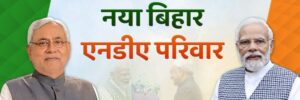Never forget your roots : Maqsooda Sarfi Shiotni
Maqsooda Sarfi Shiotani a dynamic lady of Kashmiri origin, who has left an indelible mark on Indo-Japanese social and cultural ties.Masooda Sarfi was Born and brought up in Kashmir India, Maqsooda Sarfi, earned a PhD from the Centre of Central Asian Studies, Kashmir University in 1999.
Maqsooda Sarfi Shiotani has made her tremendous impact in academic, cultural and social manifestations of life in f Japan,not only this,Her research thesis on the Mongolian history and culture was a positive point to win her a scholarship from the Union Ministry of Human Resources for joining the Mongolian National University for a two-year program. She currently persists in Kanazawa, Japan for nearly 40 years. Besides teaching cross-cultural communication in universities, she runs business in Japan. She marked her potentiality as an integral part of the Japanese social system that helped her rise in the limelight as an icon of the mixed Indo-Japanese cultural stream. Her innate potential blossomed and she made her mark in academic, cultural and social manifestations of life.
Above all, as an Indian, she has excelled as the unofficial Indian ambassador to Japan, cementing India’s ties with the land of the rising sun. Living in Kanazawa, Japan for nearly 40 years (since 1984), she has left an indelible mark on Indo-Japanese social and cultural ties.
The Ishikawa Indian Association received the “Ishikawa Prefectural Governor’s Award” by the Ishikawa Prefectural Government, Japan, in 2009, for significant contribution to social activities and cultural promotion.
On 10 January 2023 Maqsooda was awarded the Pravasi Bharatiya Samman Award by President Droupadi Murmu for outstanding achievement in the field of
Education and in recognition of your valuable contribution in promoting the honour and prestige of India and in
fostering the interests of Overseas Indians.
Journalist Mir Sabeen Gulrez through Maqsooda Sarfi Shiotani interview with News Kashmir.
1.Sabeen : Tell us a bit about your early life ?
Maqsooda : About my early life, well I was born and brought up in srinagar. Had my schooling here.I am a product of kashmir university where I did my higher education.
2.Sabeen : A bit on your research journey ?
Maqsooda : About my research journey, it started from the Center of Central Asian studies department back in 1980s .I was the first batch student of Central Asian studies
. I joined as an Mphil student under professor Maqbool Ahmad who actually established the department. I was sent to Mongolia which was in those times a socialist country. My research thesis was on the Mongolian history and culture. I was fortunate enough to win a scholarship from the Union Ministry of Human Resources for joining the Mongolian National University for a two-year program. After my return I joined the Center as a Research Associate . My Mphil thesis was published by the Center. I did my phd under professor Abdul Majeed Matto Sahib . Soon after I landed in Japan as a bride, where I started business and established the Ishikawa Japan-Indian Association. I took a break from research for some time to give lectures on Indian culture throughout Japan, as head of the said Association. I had the privilege of being the Professor, Komatsu University Japan where I have been teaching cross-cultural communication . Also as an owner of an Indian restaurant, ‘Rubina ‘ I am introducing authentic Indian cuisine and saree in feminist fashion in Japan to help enhance academic, cultural and social manifestations of life in the Indo-Japanese cultural stream. While doing business I never left my academics self . This year January 10th I received the Pravasi Bharatiya Samman Award (PBSA)2023 for my contribution in the educational field. About research it never ends , the more you dig the more you need to know. it always is a continuing process.
3. Sabeen : How do you see world surfacing post covid ?
Maqsooda : The world is still struggling hard to come out of the pandemic but fortunately India due to very strong leadership and financial planning has stood strong and is progressing very fast. Besides we as leaders of G20 are able to bring the world community together. These strong vibes are going to be seen all over the world.
4. Sabeen : Your favorite personalities ?
Maqsooda: My favorite personalities, Swami Vivekanand and A.P .J Abdul Kalam sahib. They have taught me to be spiritual and work hard. It always pays back.
5. Sabeen : How do you view the rise of Indian youth ?
Maqsooda : It always gives me pleasure to see our youth doing a great job in different fields. Our rising youth is our strength. The world has become very close.
G20 has changed the face of India on the earth. The world cannot do without india and we have a great talented pool of young people in India. we have a skilled work force, technical know hows, our digital technology all these fields are where our young generation could contribute. The slogan One earth , one family and one future is very meaningful when it comes to collaboration and cooperation in all sectors whether economy business infrastructure or education sector not only between india and japan but also in the whole world.
For me the educational sector always interests me the most. I hope we could collaborate in our MA , phd and post doctorate level as well as faculty exchange with universities in both the countries in jammu kashmir as well.
6. Sabeen : Your message ?
Maqsooda : My message to youth is to have passion in what they want to do , accept and adopt new challenges and never forget their roots, your roots make you special and unique , you are recognized and appreciated. My own experience speaks so wish all rise and shine.


 News Kashmir Health Bureau
News Kashmir Health Bureau


